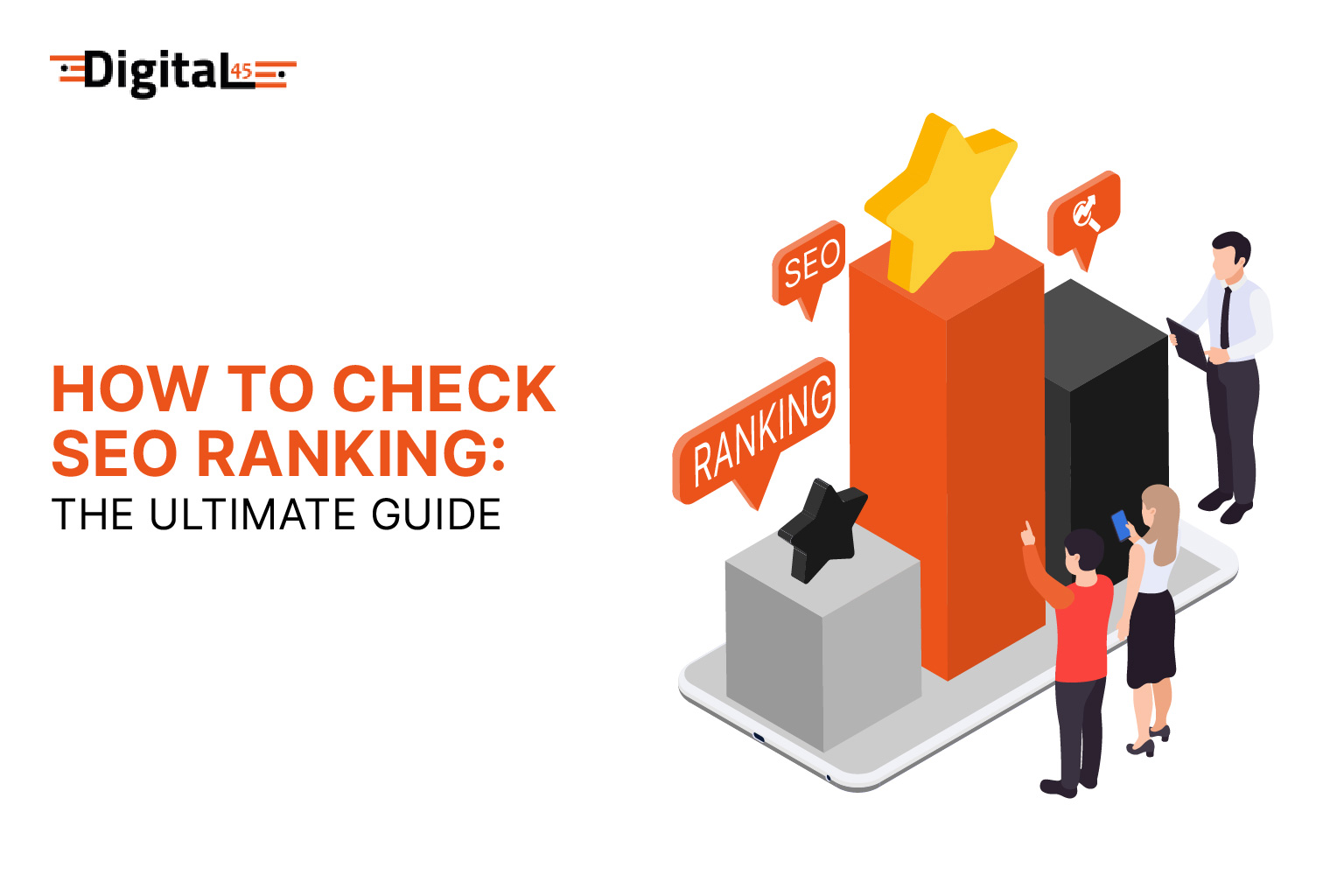In the vast wilderness of the internet, where websites battle for the top spot-on search engines, knowing your SEO ranking is like having a treasure map to success.
Picture this: You’ve optimized your website with high-quality content, the top keywords, and a sleek design, but how do you know if it’s climbing the ranks? That’s where the magic of SEO ranking checks comes into play. It’s like checking your report card after a semester of hard work.
In this comprehensive guide, we’ll walk you through the labyrinth of SEO ranking with insights from the best SEO company for your growth.
So, grab your virtual binoculars, and let’s begin this exciting expedition into the world of SEO ranking checks!
What are Google Rankings, And Why Do They Matter for Businesses?
Google SEO rankings depend on various factors, such as the content’s quality and quantity, backlinks, and more. Achieving a higher SEO ranking on Google can result in more organic traffic to your website, leading to increased customers and conversions for your business.
You can check your Google SEO rankings in several ways, with the most common method being the use of Google Search Console on your website. This tool will display where your website stands in terms of specific keywords.
What Are The Most Important SEO Ranking Factors?
When you want your website to rank higher on Google, you might feel overwhelmed by the many things you can do to improve it. However, you don’t need to aim for perfection; instead, focus on the ranking factors that offer the most significant benefits.
To simplify things, we’ve identified the most crucial SEO ranking factors that can help boost your website’s search engine ranking:
 High-Quality Content
High-Quality Content
You’ve probably come across the classic SEO phrase that goes, “Content is king.” When it comes to factors that influence Google rankings, the quality of your content plays a significant role.
If you’re able to produce content that is original, up-to-date, and genuinely beneficial for users, Google will give it a higher position on its search engine results page (SERPs).
Google places a great deal of importance on the quality of your content. Regardless of how well your webpage is optimized, if your content lacks value, you shouldn’t anticipate higher rankings.
Backlinks
After the quality of your content, the next crucial factor that significantly impacts your ranking on Google is backlinks. Backlinks are links from other websites that point to your site, and they wield a significant influence on Google’s ranking algorithm.
To put it simply, webpages with fewer backlinks tend to receive far less organic traffic because they often appear lower in the search results. In other words, having a good number of quality backlinks can help your website rise higher in Google’s search rankings, making it more visible to potential visitors.
Search Intent and Content Relevancy
A vital factor for Google’s rankings is how closely your content aligns with what a user is looking for when they search. This concept is known as “search intent,” which essentially means figuring out what the user wants to achieve with their search.
Are they looking to purchase something to solve a problem or fulfill a need? Do they aim to learn how to complete a specific task? Or are they simply seeking information to gain a better understanding of a particular topic?
Each person searching has unique intentions, and it’s crucial for you to comprehend why someone is using a particular search query so that your content can effectively address their needs.
Domain Authority
The next important factor to focus on for improving your website’s search engine ranking is called “Domain Authority” or simply “DA.” It’s a metric that assesses how well your website is regarded as an expert in a specific topic and its potential to appear higher in search engine results.
Domain Authority was introduced by the best SEO company, and it assigns a score ranging from 1 to 100. The higher your Domain Authority score, the better your chances of showing up on Google when people search for keywords related to your field of expertise.
Keyword Optimization
One of the key factors for improving your website’s ranking in search engines, besides creating original content and acquiring backlinks, is the strategic use of keywords.
Keywords are essential because they need to align with the words and phrases that users enter into search engines. Therefore, it’s crucial to ensure that your web pages incorporate the specific keywords that your target audience is searching for.
Additionally, it’s equally important to ensure that your content aligns with the users’ search intent.
How Do I Check My SEO Rankings?
To check how well your web pages are performing in search engines, you need to assess their SEO rankings. One commonly used tool for this purpose is Google Search Console. Here’s a simple guide to help you do it:
- Choose the website domain you want to check rankings for from the top-left menu.
- Navigate to the “Search Results” section.
- Look for a square on the right side; it represents your average position over time.
- Scroll down to the “Queries” section, and you’ll find a list of the keywords your pages rank for.
- You can refine your view by position to identify your top-performing keyword for that page.
By following these steps, you can easily understand how well your web pages are ranking in search engine results.
Bonus Advice
The Most Important SEO Ranking Tips for Great Results
Optimize Page Titles and Meta Descriptions
Craft compelling and descriptive page titles that include your target keywords. Your title should accurately represent the content of the page.
Write concise and enticing meta descriptions that encourage users to click through to your page. Make sure to include keywords naturally.
Schema Markup
Schema markup is like a secret code for search engines. It helps them understand your content better and present it in a more meaningful way in search results.
Implementing schema markup can improve click-through rates and give your website an SEO boost.
Optimize Images
Large, unoptimized images can slow down your website and frustrate users. To keep it easy, optimize your images by reducing their file size without compromising quality.
Use descriptive file names and include relevant alt text for each image to help search engines understand what the images are about. This not only improves page loading speed but also enhances accessibility and SEO.
Social Signals
Social signals refer to the online buzz and interactions your content generates on social media platforms. It’s like word-of-mouth marketing in the digital world. Create shareable content and actively engage with your audience on social media.
When people share, like, comment, or link to your content on platforms like Facebook, Twitter, or LinkedIn, it sends positive signals to search engines. These signals can indirectly impact your search rankings.
Final Thoughts on SEO Ranking
When assessing SEO rankings, it’s crucial to maintain clarity and simplicity. Focus on key metrics like keyword rankings, organic traffic, and user engagement. Regularly monitor these indicators to gauge the effectiveness of your SEO efforts.
Remember, SEO is an ongoing process, so consistency is key. For expert guidance and to improve your rankings, trust Digital45, the best SEO company and reliable SEO ranking expert.
Contact us today to boost your online presence and achieve lasting success.



